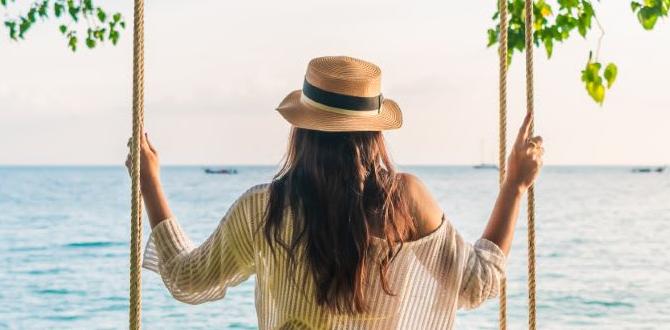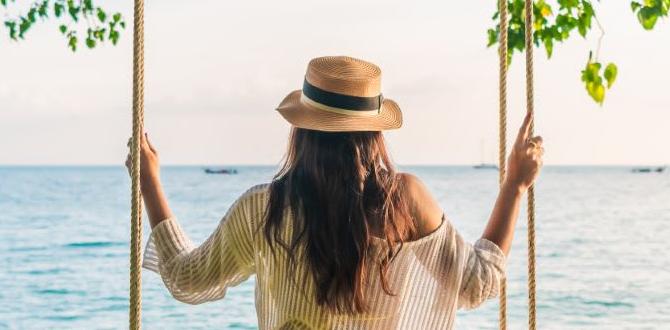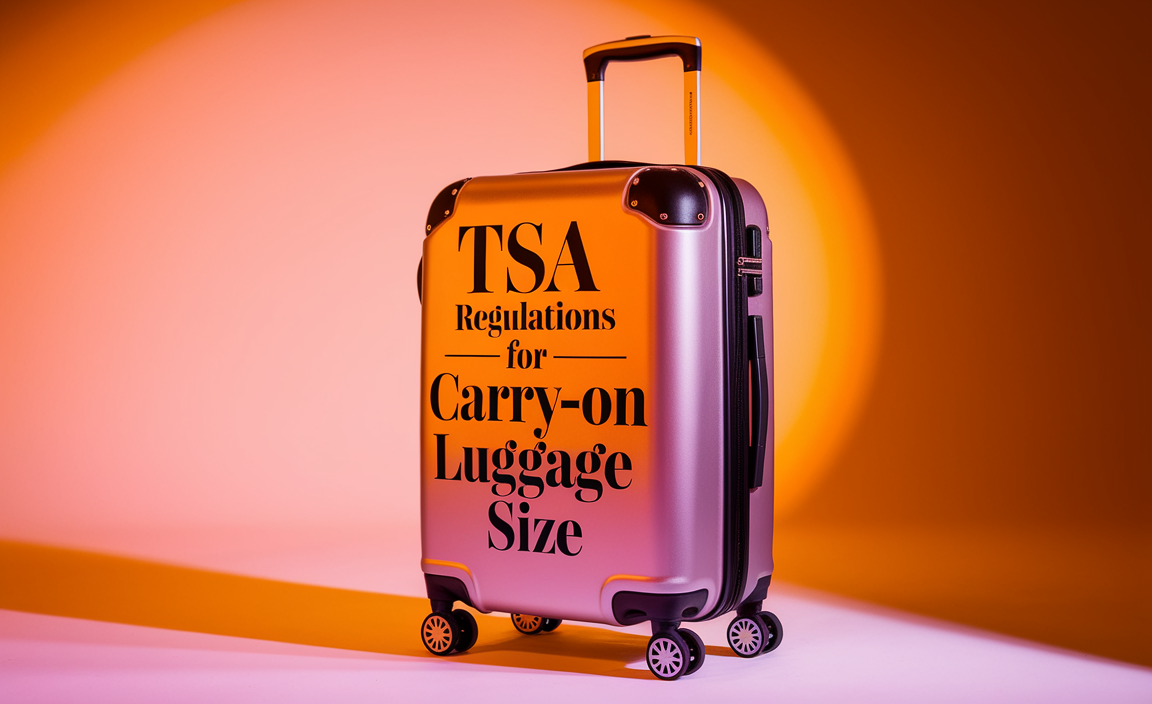Bavaria LGBTQ+ friendly areas are plentiful, with vibrant cities like Munich leading the way and charming towns increasingly embracing inclusivity. Expect welcoming spaces, diverse communities, and enriching cultural experiences across the region.
Bavaria, a state in southeastern Germany, conjures images of fairytale castles, rolling hills, and hearty beer gardens. But what if you’re planning to visit and want to ensure you’ll be welcomed and comfortable as part of the LGBTQ+ community? It’s a fair question, and one many travelers consider. You might be wondering if Bavaria is as progressive and open everywhere as you’ve heard, or if certain areas are more suited for LGBTQ+ travelers. Don’t worry; planning your trip doesn’t have to be complicated. This guide will show you exactly where to find the most welcoming spots in Bavaria, making your journey both enjoyable and stress-free. We’ll dive into the key destinations and share practical tips.
Why Bavaria Welcomes the LGBTQ+ Community
Bavaria has made significant strides in LGBTQ+ rights and acceptance over the years. While it may have a reputation for tradition, its urban centers, in particular, are dynamic and progressive. Munich, the capital, is a hub for LGBTQ+ life, offering numerous bars, clubs, community centers, and events. Beyond the capital, other cities and even some rural areas are becoming increasingly aware and welcoming. This growing inclusivity is a reflection of broader societal changes in Germany, which has robust legal protections for LGBTQ+ individuals, including same-sex marriage and adoption rights.
Understanding the legal framework can offer peace of mind. Germany ratified the European Convention on Human Rights, which includes protections against discrimination based on sexual orientation and gender identity. You can learn more about LGBTQ+ rights in Germany from the Federal Ministry for Family Affairs, Senior Citizens, Women and Youth. This legal backing contributes to a safer and more open environment for LGBTQ+ travelers.
Munich: The Vibrant Heart of Bavaria’s LGBTQ+ Scene
When it comes to LGBTQ+ friendliness in Bavaria, Munich is undoubtedly the shining star. It’s a city that effortlessly blends Bavarian tradition with a modern, cosmopolitan vibe. The city boasts a long history of LGBTQ+ activism and community building, making it a cornerstone for inclusivity in the region.
Delectable Dining and Drinks in a Friendly Atmosphere
Munich offers countless options for dining and socializing, and many establishments are known for their welcoming atmosphere. You’ll find everything from traditional Bavarian beer gardens that are surprisingly inclusive to chic cocktail lounges and dedicated LGBTQ+ bars.
Viktualienmarkt: This bustling outdoor market is more than just a place to buy fresh produce; it’s a social hub. Many of the small eateries and beer tents here are very relaxed and accustomed to diverse crowds.
Glockenbachviertel: Known as Munich’s LGBTQ+ district, this vibrant neighborhood is packed with cafes, bars, and restaurants where you’ll feel right at home.
Schleus-N-U: A popular and long-standing gay bar in the Glockenbachviertel, offering a friendly atmosphere whether you’re looking for a quiet drink or to dance the night away.
Ochsengarten: Another iconic gay bar in Munich, it’s a great spot for meeting people and enjoying a lively evening.
Cultural Experiences and Events
Munich doesn’t just offer nightlife; it provides rich cultural experiences throughout the year. Many of these events are explicitly inclusive and celebrate diversity.
Christopher Street Day (CSD) Munich: Held annually, this is Bavaria’s largest LGBTQ+ Pride festival, featuring parades, parties, and cultural events. It’s a fantastic time to visit if you want to experience the city at its most vibrant and celebratory.
Munich Film Festivals: Various film festivals often showcase LGBTQ+ themed movies, providing engaging cultural entertainment.
Museums and Galleries: Munich is home to world-class museums and galleries, many of which engage with themes of diversity and inclusion in their exhibits. The Alte Pinakothek, Neue Pinakothek, and Pinakothek der Moderne are excellent starting points for art lovers.
Accommodation Options
Munich offers a wide range of accommodations, from luxurious hotels to cozy guesthouses and apartments. The key is to look for places in or near areas known for their diverse and welcoming atmosphere, such as the Glockenbachviertel or areas with good public transport links to it. Many hotels have non-discrimination policies, and booking platforms often provide reviews that can hint at the establishment’s overall vibe.
Nuremberg: History Meets Modern Inclusivity
Nuremberg, Bavaria’s second-largest city, seamlessly weaves its rich historical tapestry with a growing sense of modern inclusivity. While perhaps not as overtly LGBTQ+-centric as Munich, Nuremberg has a welcoming spirit and a developing scene that makes it a comfortable destination for visitors.
A City of Contrasts and Welcome
Nuremberg is famous for its Imperial Castle and its historical role in German history, but today it’s also a city of innovation and diversity. Its LGBTQ+ scene is smaller than Munich’s but is active and growing, with dedicated spaces and a general atmosphere of acceptance.
Heuboden: A well-known bar in Nuremberg that caters to the LGBTQ+ community and its allies, offering a friendly and relaxed environment.
Bar Centrale: A stylish and popular bar frequented by a diverse crowd, known for its good cocktails and welcoming staff.
Various Cafes and Restaurants: Like many German cities, Nuremberg has numerous cafes and restaurants throughout its city center that are generally inclusive and accustomed to a wide range of patrons. Exploring the area around the Handwerkerhof or along the river Pegnitz can lead to pleasant discoveries.
Exploring Nuremberg and Beyond
Nuremberg offers a wealth of historical sites and cultural attractions. The city actively promotes its heritage while looking towards a progressive future.
Nuremberg Castle (Kaiserburg Nürnberg): A must-visit for its historical significance and panoramic city views.
Germanisches Nationalmuseum: This expansive museum covers German art and culture, offering deep insights into the country’s heritage.
Documentation Center Nazi Party Rally Grounds: A sobering but important site for understanding history.
When looking for accommodation in Nuremberg, consider areas close to the city center or the main train station, as these are well-connected and generally safe and welcoming.
Augsburg: Historic Charm, Growing Acceptance
Augsburg, one of Germany’s oldest cities, boasts a remarkable history and a charming atmosphere. It’s a city where ancient Roman heritage meets Renaissance splendor, and increasingly, a place where inclusivity is recognized and valued.
A City Embracing Diversity
Augsburg has a smaller but distinct LGBTQ+ community. While there might not be a specific “gay district” in the same vein as Munich’s Glockenbachviertel, the city center and its various districts offer a welcoming atmosphere for everyone.
Gay & Lesbian Welcome Center Augsburg: This center is a valuable resource for local information, events, and support within the LGBTQ+ community and is a good starting point for visitors to connect or get advice.
Local Cafes and Bars: Many pubs and cafes in the city center are frequented by a diverse clientele. Areas around the Rathausplatz (Town Hall Square) and the Fuggerei (a historic social housing complex) are good places to explore.
Events: Keep an eye on local event listings for any Pride events or LGBTQ+-themed gatherings that might be taking place during your visit. Augsburg also participates in broader German LGBTQ+ initiatives.
Augsburg’s compactness makes it easy to explore on foot. The city offers a more laid-back experience compared to Munich or Nuremberg, making it ideal for those seeking a quieter, yet still welcoming, Bavarian getaway.
Regensburg and Würzburg: Charming Cities with Open Hearts
Moving beyond the larger cities, smaller Bavarian cities like Regensburg and Würzburg also offer welcoming environments for LGBTQ+ travelers. These historic university towns often have a liberal undertone due to their student populations and a general appreciation for diversity.
Regensburg: A UNESCO World Heritage Gem
Regensburg, situated on the Danube River, is a beautifully preserved medieval city. Its significance is recognized by UNESCO, making it a fantastic historical destination.
Welcoming Atmosphere: While specific LGBTQ+ venues might be limited, Regensburg generally embraces an open and friendly atmosphere. Its numerous cafes, riverside beer gardens, and cultural events are enjoyed by all.
Student Influence: As a university city, Regensburg has a vibrant student population that often fosters a more liberal and inclusive environment.
Exploring the Old Town: Wandering through its cobblestone streets and visiting landmarks like the Stone Bridge or the Regensburg Cathedral is an enriching experience suitable for everyone.
Würzburg: Franconian Elegance and Inclusivity
Würzburg, nestled in the Franconian wine region, is famous for its Baroque architecture and the magnificent Würzburg Residence.
Franconian Friendliness: The people of Würzburg are known for their Franconian hospitality, which typically extends to all visitors.
University Town Vibe: Similar to Regensburg, Würzburg’s university presence contributes to an open-minded and diverse community.
Wine Taverns (Weinstuben): Experiencing the local wine culture in one of the many traditional wine taverns is a delightful and inclusive activity.
Both Regensburg and Würzburg offer a more relaxed pace and a chance to experience Bavaria’s charm away from the bustling crowds, all within a safe and welcoming space.
Practical Tips for LGBTQ+ Travelers in Bavaria
Traveling to Bavaria as an LGBTQ+ individual should be as comfortable and exciting as any other trip. Here are some practical tips to enhance your experience and ensure peace of mind.
Choosing Accommodation Wisely
When booking your stay, consider the neighborhood. Areas known for being diverse and lively, like Munich’s Glockenbachviertel, are often a good bet. However, even in more traditional areas, main hotels and well-established accommodations are typically inclusive and professional. Always check reviews for mentions of atmosphere or welcome. If you have specific concerns, don’t hesitate to contact the hotel directly beforehand.
Transportation and Getting Around
Bavaria has an excellent public transportation system, with efficient train services (Deutsche Bahn) connecting major cities and regional lines reaching smaller towns. Buses and trams are common within cities.
Apps to Use: Download apps like the Deutsche Bahn Navigator for train schedules and tickets, and local transport apps for city services.
Comfort on the Go: For longer journeys, especially if you have particular needs for comfort, consider bringing any necessary personal care items. This might include things like discreet adult diapers for peace of mind on long train rides, ensuring you can relax and enjoy the scenery without worry. Packing these essentials beforehand can make a significant difference to your travel comfort. Many travelers, including those with children needing diapers, find that having pre-packed solutions brings immense relief for extended travel periods.
Safety and Awareness
While Bavaria is generally a safe region, it’s always wise to be aware of your surroundings, as you would in any destination.
Respect Local Customs: While Bavaria is increasingly progressive, some smaller, more rural areas might be more traditional. Being respectful of local customs is always appreciated.
Emergency Numbers: Know the European emergency number, 112, which connects you to police, ambulance, and fire services.
Community Resources: If you are looking for local LGBTQ+ resources or centers, a quick online search for “[City Name] LGBTQ+” or checking local tourist information offices can often provide helpful contacts.
Language
While many Bavarians, especially in tourist areas and younger generations, speak English, knowing a few basic German phrases can be helpful and is always appreciated.
“Hallo” (Hello)
“Danke” (Thank you)
“Bitte” (Please)
* “Sprechen Sie Englisch?” (Do you speak English?)
Embracing the Bavarian Experience
Bavaria offers a rich tapestry of experiences, from breathtaking landscapes and historical sites to vibrant cultural scenes. The region is increasingly a welcoming destination for LGBTQ+ travelers, with Munich leading the charge and other cities and towns embracing inclusivity.
By choosing accommodation in friendly neighborhoods, utilizing the excellent public transport, and staying aware, you can ensure a comfortable and memorable trip. Whether you’re exploring the bustling streets of Munich, delving into history in Nuremberg, or enjoying the serene beauty of smaller towns, Bavaria has something to offer everyone.
Remember to pack any personal comfort items you might need, just as you would for any trip, to ensure complete peace of mind. This proactive approach allows you to focus on enjoying the unique charm and hospitality of Bavaria. So, pack your bags, plan your itinerary, and get ready to experience the magic of Bavaria – an inclusive adventure awaits!
Frequently Asked Questions About LGBTQ+ Travel in Bavaria
Is Bavaria generally welcoming to LGBTQ+ travelers?
Yes, Bavaria is generally very welcoming to LGBTQ+ travelers. Its capital, Munich, is particularly known for its vibrant and inclusive LGBTQ+ scene. While acceptance can vary slightly across different regions, overall, Germany, including Bavaria, has strong legal protections and a growing societal acceptance.
Which cities in Bavaria are considered the most LGBTQ+ friendly?
Munich is by far the most LGBTQ+ friendly city in Bavaria, with a dedicated district (Glockenbachviertel) filled with bars, clubs, and community spaces. Nuremberg and Augsburg also have developing LGBTQ+ scenes and are considered welcoming. Smaller university towns often have a more liberal and inclusive atmosphere as well.
Are there specific LGBTQ+ venues like bars and clubs in Bavaria?
Absolutely. Munich has a wide array of LGBTQ+ venues, including well-known spots like Schleus-N-U and Ochsengarten. Nuremberg also has established venues such as Heuboden. While smaller towns may have fewer dedicated venues, many general bars and cafes are inclusive and welcoming.
What is Christopher Street Day (CSD) in Bavaria?
Christopher Street Day (CSD) is the annual LGBTQ+ Pride festival celebrated in Germany. In Bavaria, CSD Munich is the largest event, featuring parades, cultural activities, and parties, making it a significant celebration of LGBTQ+ visibility and rights.
Is it safe for LGBTQ+ couples to travel together in Bavaria?
Yes, it is generally safe for LGBTQ+ couples to travel together in Bavaria. Germany has strong anti-discrimination laws, and public displays of affection between same-sex couples are widely accepted, especially in urban centers. As with any travel, it’s always advisable to be aware of your surroundings.
What are some LGBTQ+-friendly activities or attractions in Bavaria besides nightlife?
Beyond nightlife, many Bavarian attractions are inclusive for everyone. This includes visiting historical sites like Munich’s Marienplatz, exploring museums, enjoying the natural beauty of the Alps, attending cultural festivals, and experiencing traditional Bavarian cuisine and beer gardens, which are generally open to all.
How can I find localized LGBTQ+ information or support in Bavarian towns?
For specific towns, you can often find information online by searching for “[City Name] LGBTQ+”, or by visiting the local tourist information office, which can sometimes point you towards community resources or inclusive businesses. Augsburg, for example, has a dedicated Welcome Center.




